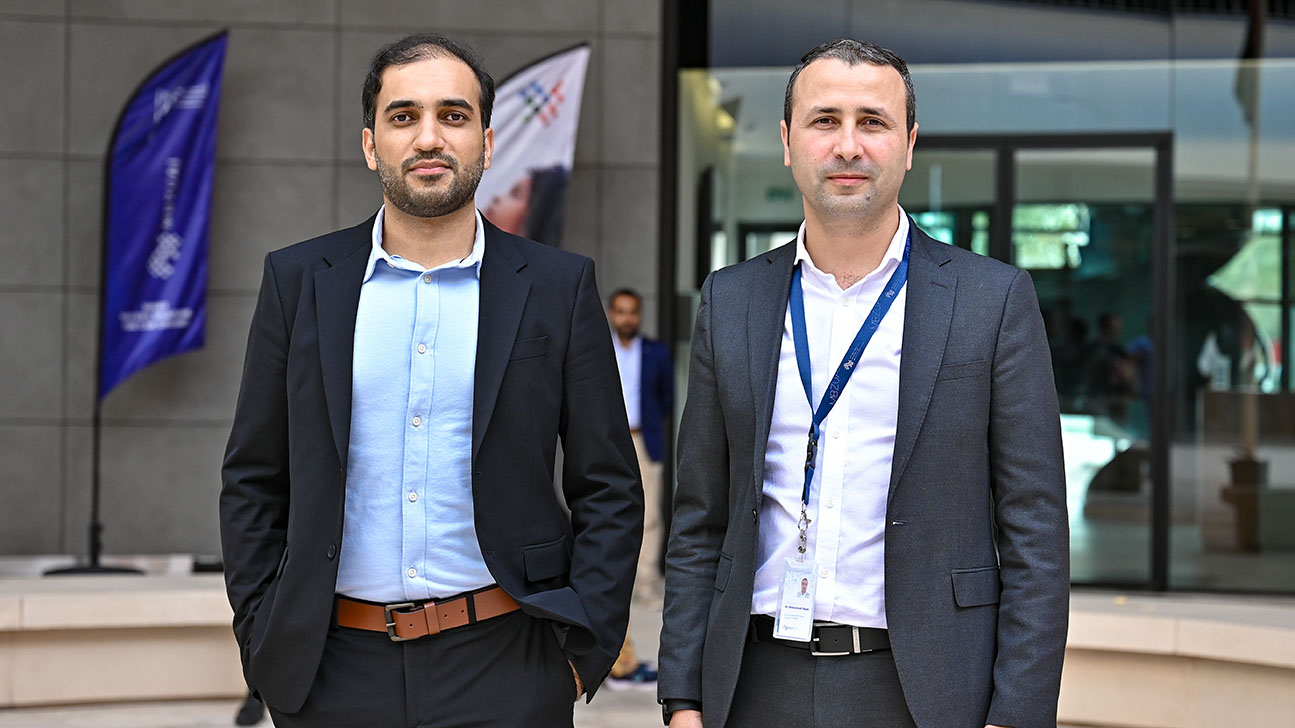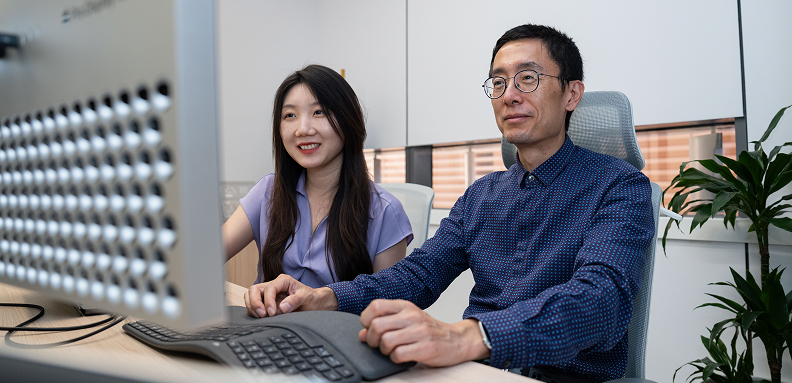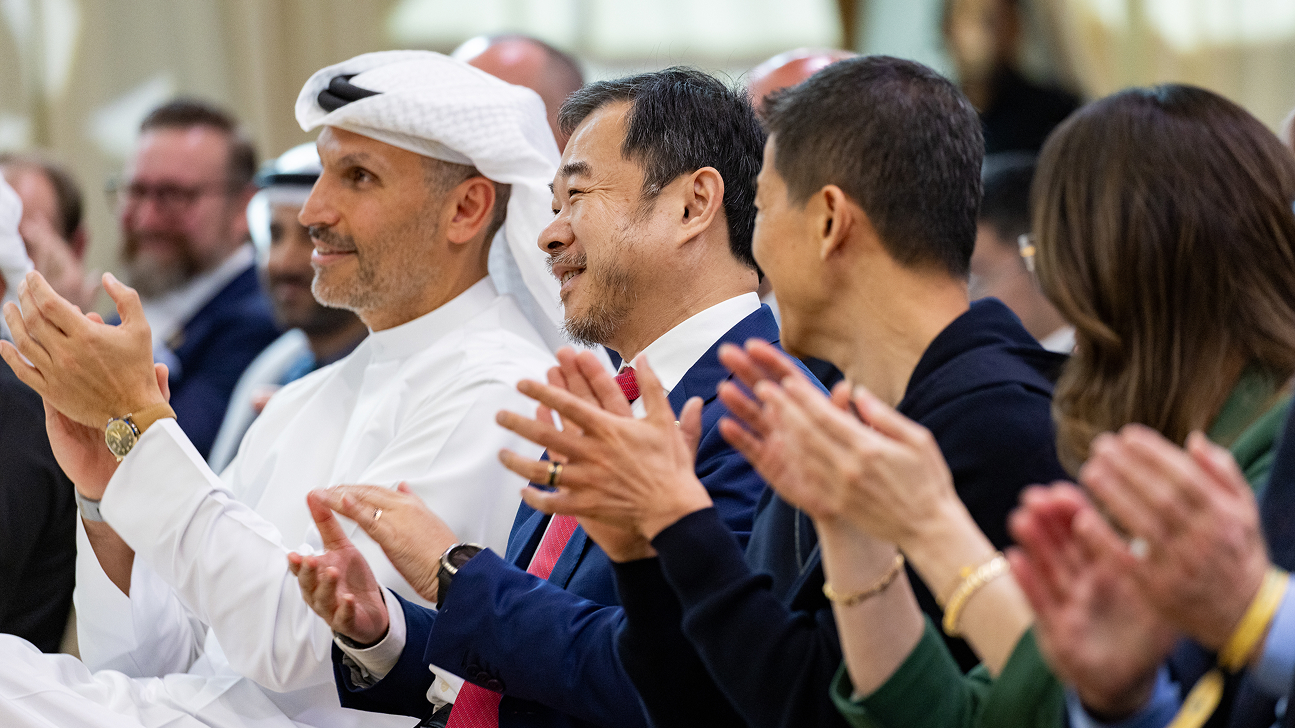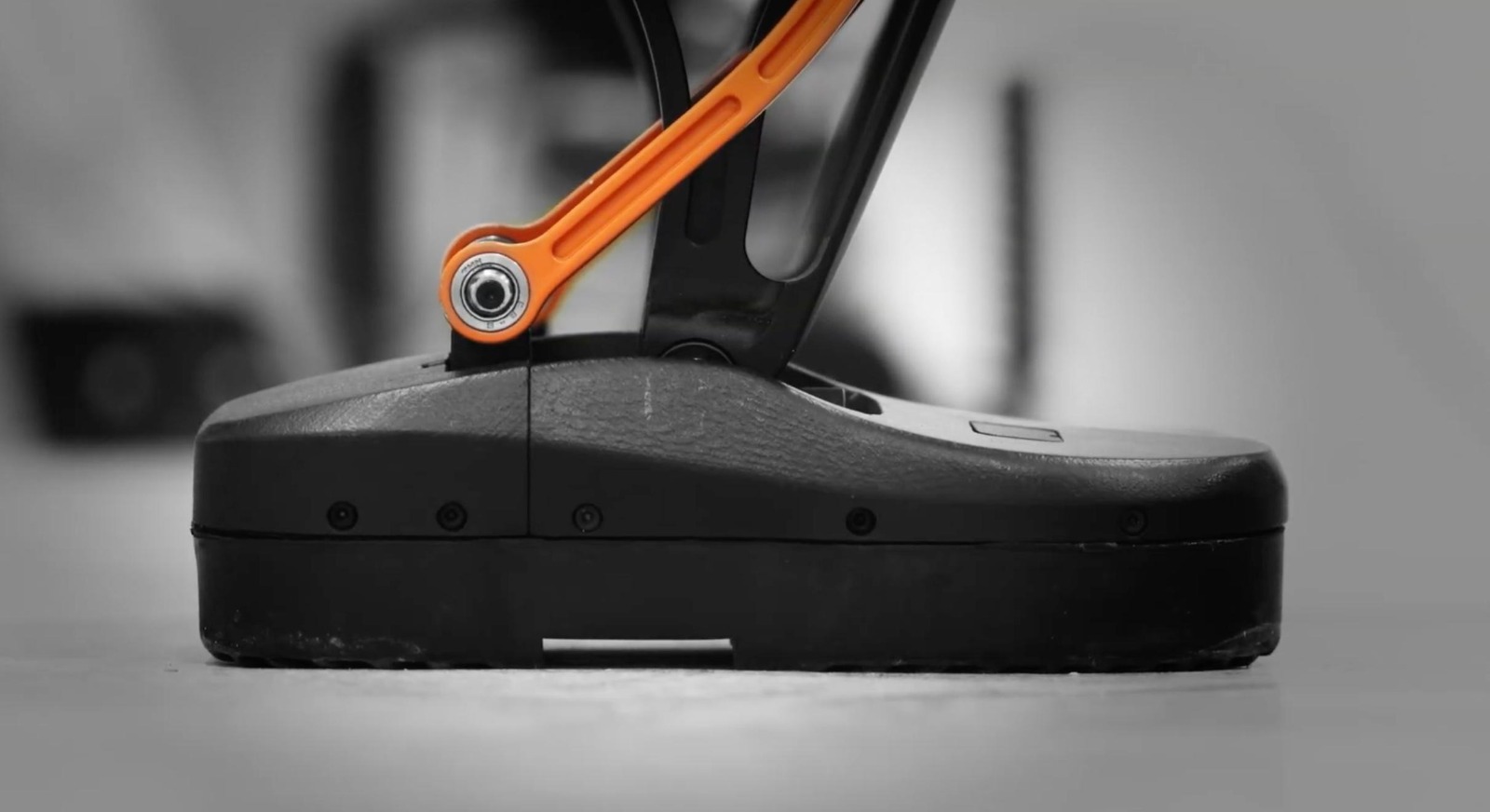MBZUAI awards its first Ph.D.
Monday, November 27, 2023

In the history of any academic institution there will always be a long list of firsts – the first intake, the first graduating cohort, the first patent awarded – all of which are rightly celebrated, and then there are other firsts that occupy an especially fond place in an institution’s memory.
That is certainly the case with Numan Saeed (pictured with Dr. Mohammad Yaqub), who recently became the first Mohamed bin Zayed University for Artificial Intelligence (MBZUAI) student to be awarded a Ph.D.
Entitled Deep Learning for Cancer Diagnosis and Prognosis, Saeed’s dissertation explores how deep learning models can assist in the treatment of cancers of the head and neck, the seventh most common form of cancer globally. Put simply, the research investigates how deep learning models can be used to diagnose tumors and predict the survival rate of a patient diagnosed with specific forms of cancer?
Head and neck cancers affect around 1.1 million people in 2021, but when they are diagnosed early, effective treatment can reduce mortality rates by up to 70%, which makes any technology that can significantly improve diagnosis and prognosis a literal lifesaver.
As well as developing a multi-modal AI model that is capable of interpreting PET and CT scan imagery – which in artificial intelligence (AI) terms is a computer vision (CV) challenge – and the correct interpretation of associated doctor’s notes, which falls within the realm of natural language processing (NLP). To arrive at a diagnosis and a prognosis, the AI model must consider variables such as age, gender, weight, the size of the tumor, prior treatment and whether or not they drink alcohol and smoke. Saeed’s research also investigates what it will take to get AI-empowered diagnosis into hospitals as an everyday healthcare solution.
“To make this kind of diagnosis and prognosis possible, you have to make sure that it is generalizable, and to do that, you have to focus during the training stage to make evaluation processes stricter and more robust.”
Saeed believes the impact of the technology could be particularly profound in countries such as India where oncological services are limited and there is a shortage of specialist clinicians, especially in rural areas where more than two-thirds of the country’s 1.43 billion people live.
As always with when training AI models, the availability of data is key, which poses particular problems in a medical context given concerns around patient confidentiality. Baselines are also required, which means accessing data from patients from as wide a demographic range as possible as well as those who are healthy.
“If a model predicts anything it should be able to predict how confident it is about its diagnosis and prognosis,” Saeed explains.
One way of overcoming the issue of patient confidentiality, he continues, is to use an AI technique known as federated learning, to be able to analyse patient data in-situ without it ever leaving a hospital. For Saeed, pursuing the use of federated learning for diagnosis is the next stage of his research.
Saeed completed his Ph.D. in record time, taking just three years rather than the usual four or five. He also did so while completing five papers where he was the lead researcher and contributing to five more and winning an international competition, HEKTOR 2021 [Head and Neck Tumor segmentation and outcome prediction in PET/CT images), which was launched by the prestigious International Conference on Medical Image Computing and Computer Assisted Intervention (MICCAI).
Saeed’s supervisor, Dr. Mohammad Yaqub, Associate Professor of Computer Vision at MBZUAI, described the achievement as a testament not just to Saeed’s personal talent, drive, and commitment, but also to the university’s ability to produce world-class, transformational research on a par with that produced by globally-recognised institutions.
“Saeed’s groundbreaking research shows just what is possible for students at MBZUAI,” says Dr. Yaqub, who leads the largest research group at the university, which is dedicated to using AI algorithms to solve real-world healthcare problems.
Prior to joining MBZUAI, Yaqub was a postdoctoral fellow for six years in the Institute of Biomedical Engineering at the University of Oxford and spent more than seven years in industry working as a consultant followed by a full position as vice president of engineering at Intelligent Ultrasound Limited.
“With the UAE’s advanced healthcare infrastructure and our partnerships with Abu Dhabi-based organisations such as the Cleveland Clinic and the Sheikh Shakhbout Medical City, which is a partnership with the Mayo Clinic, MBZUAI has the potential to become a world-leader in the application of AI in the healthcare domain.”
Related
Not just another deck: how MBZUAI’s okkslides is redefining executive communication
The MBZUAI startup is turning messy research and organizational context into decision-ready narratives with a human-in-the-loop AI.....
Read MoreMBZUAI marks five years of pioneering AI excellence with anniversary ceremony and weeklong celebrations
The celebrations were held under the theme “Pioneering Tomorrow: AI, Science and Humanity,” and featured events, lectures,.....
- celebration ,
- five year anniversary ,
- ceremony ,
- event ,
- board of trustees ,
- campus ,
- students ,
- faculty ,
MBZUAI and Minerva Humanoids announce strategic research partnership to advance humanoid robotics for applications in the energy sector
The partnership will facilitate the development of next-generation humanoid robotics tailored for safety-critical industrial operations.
Read More

